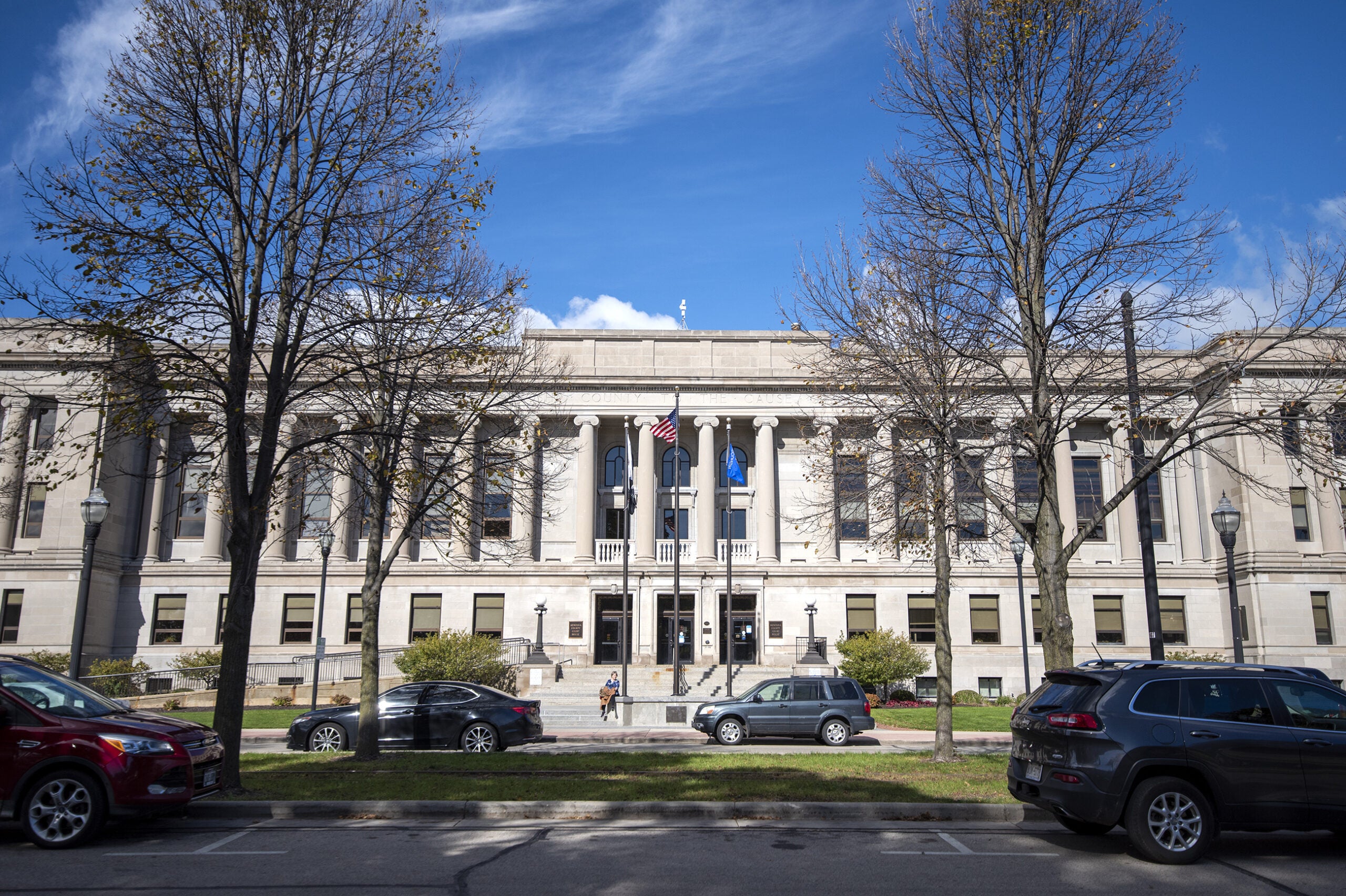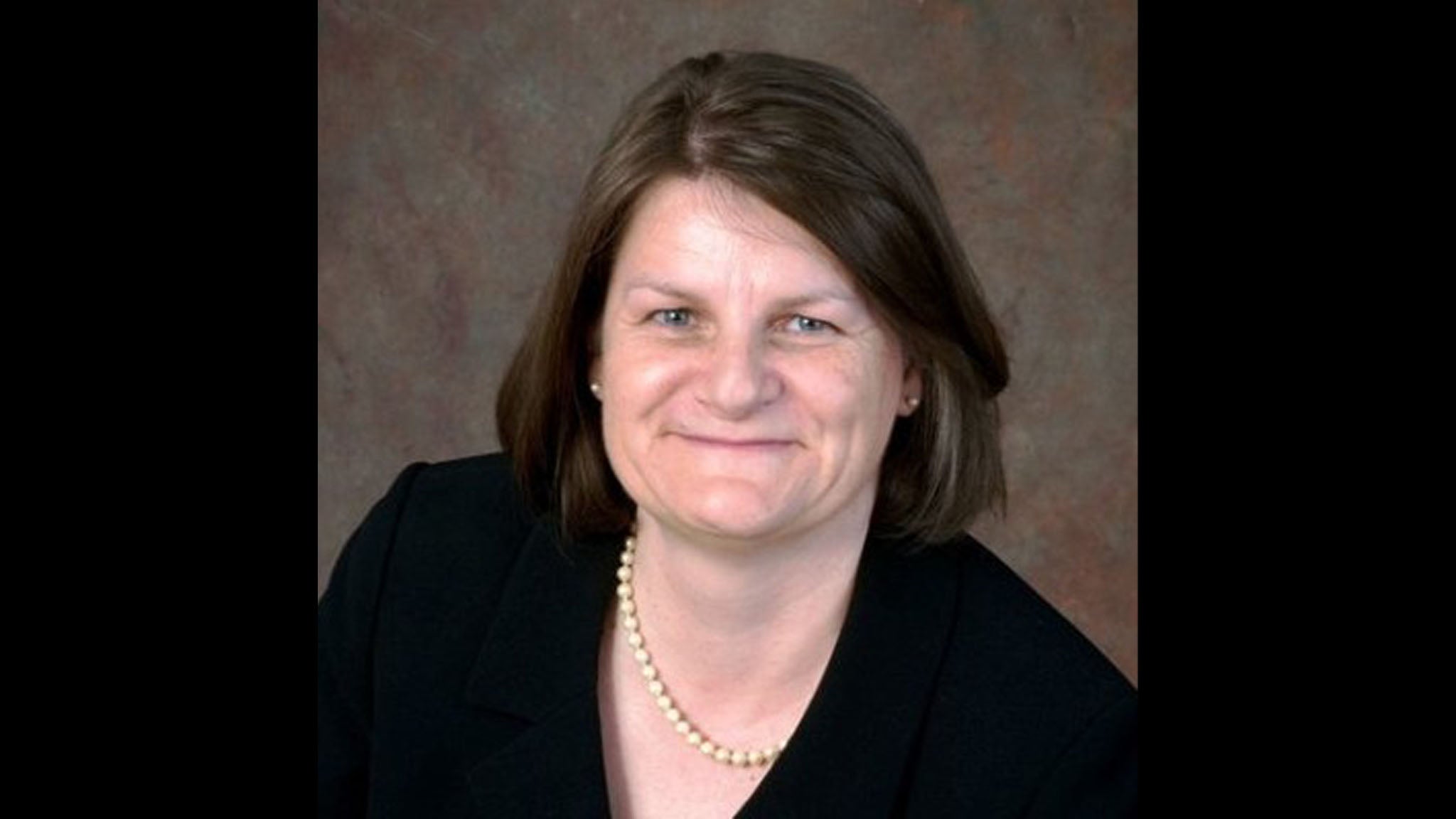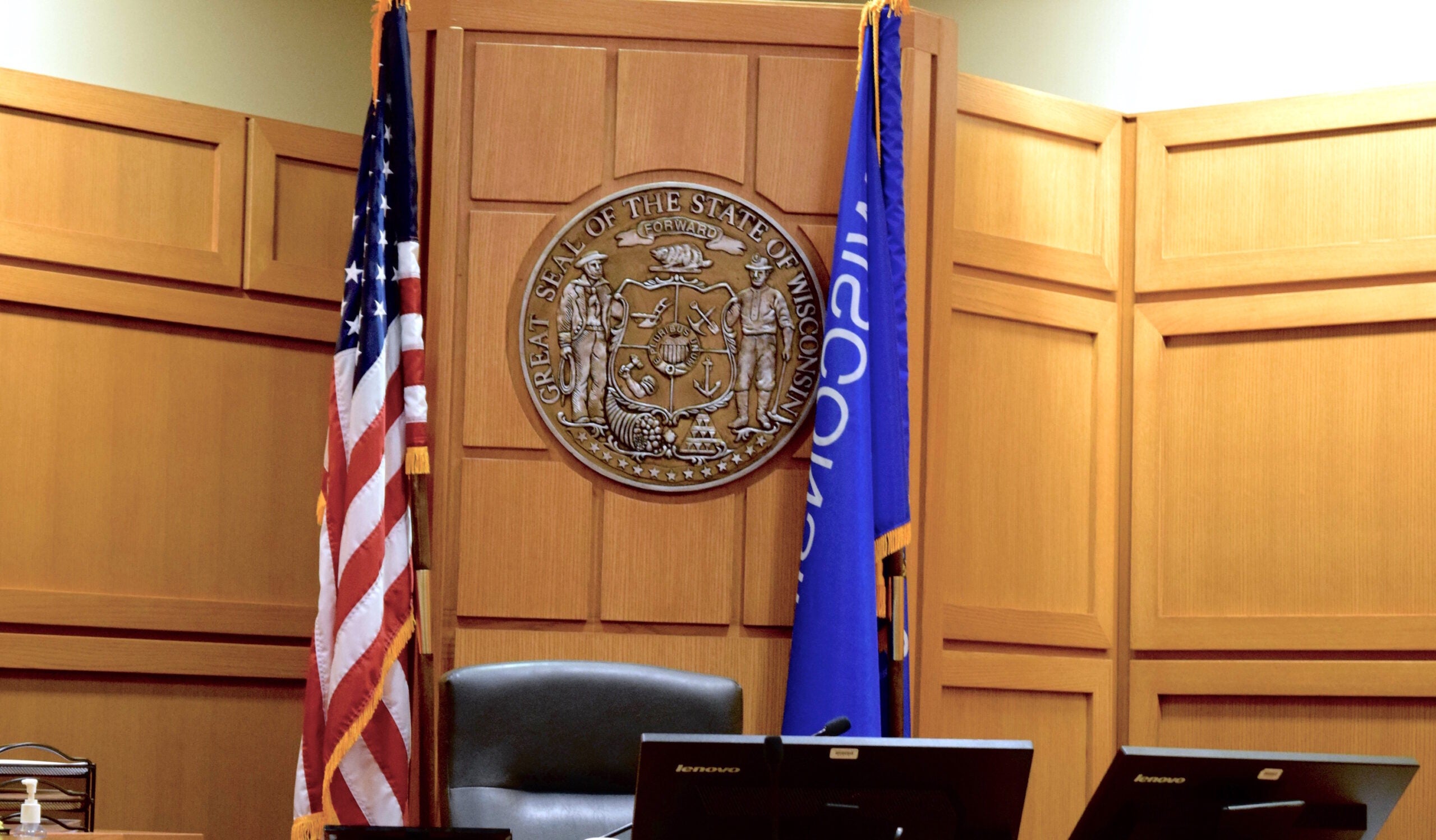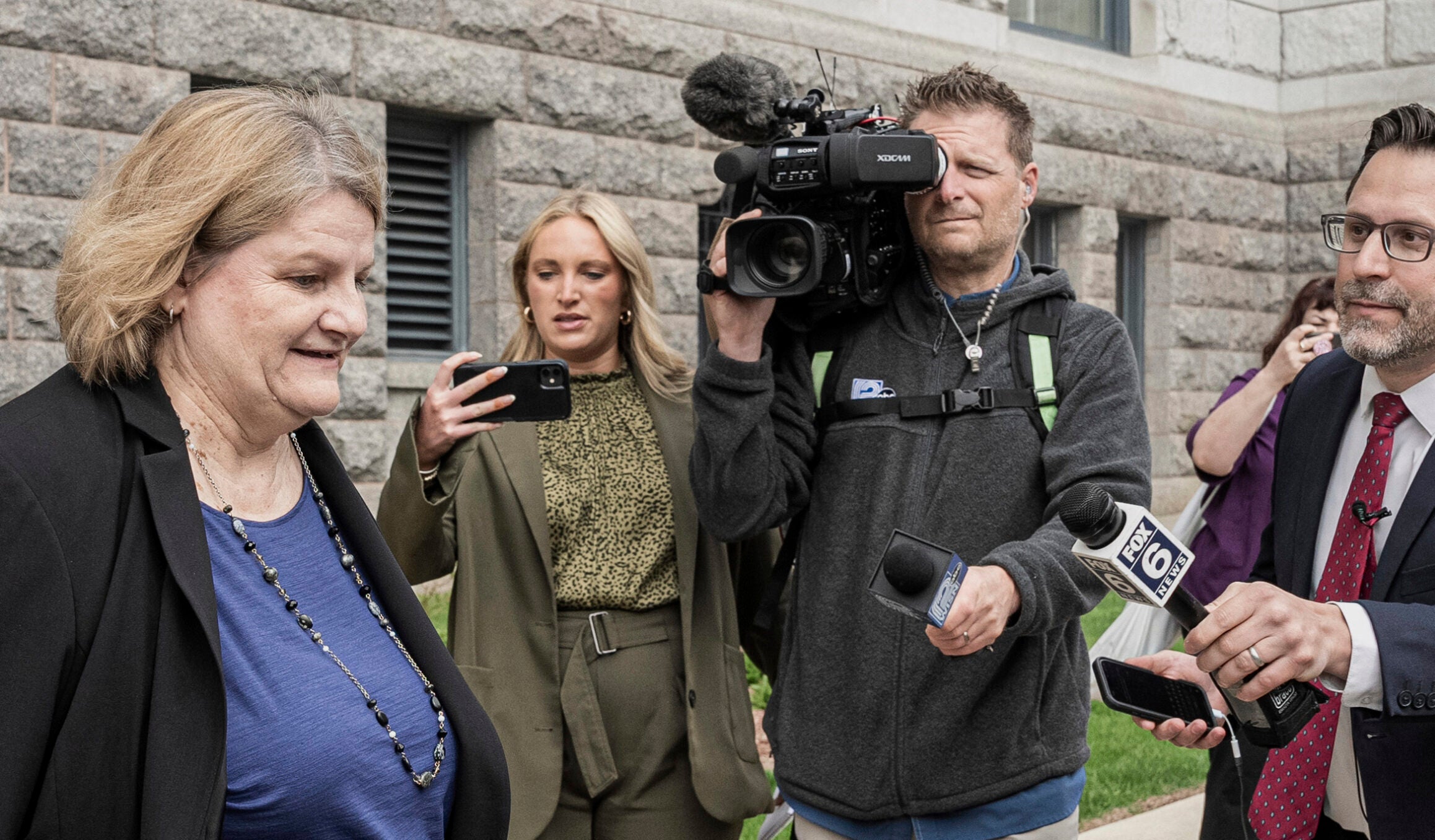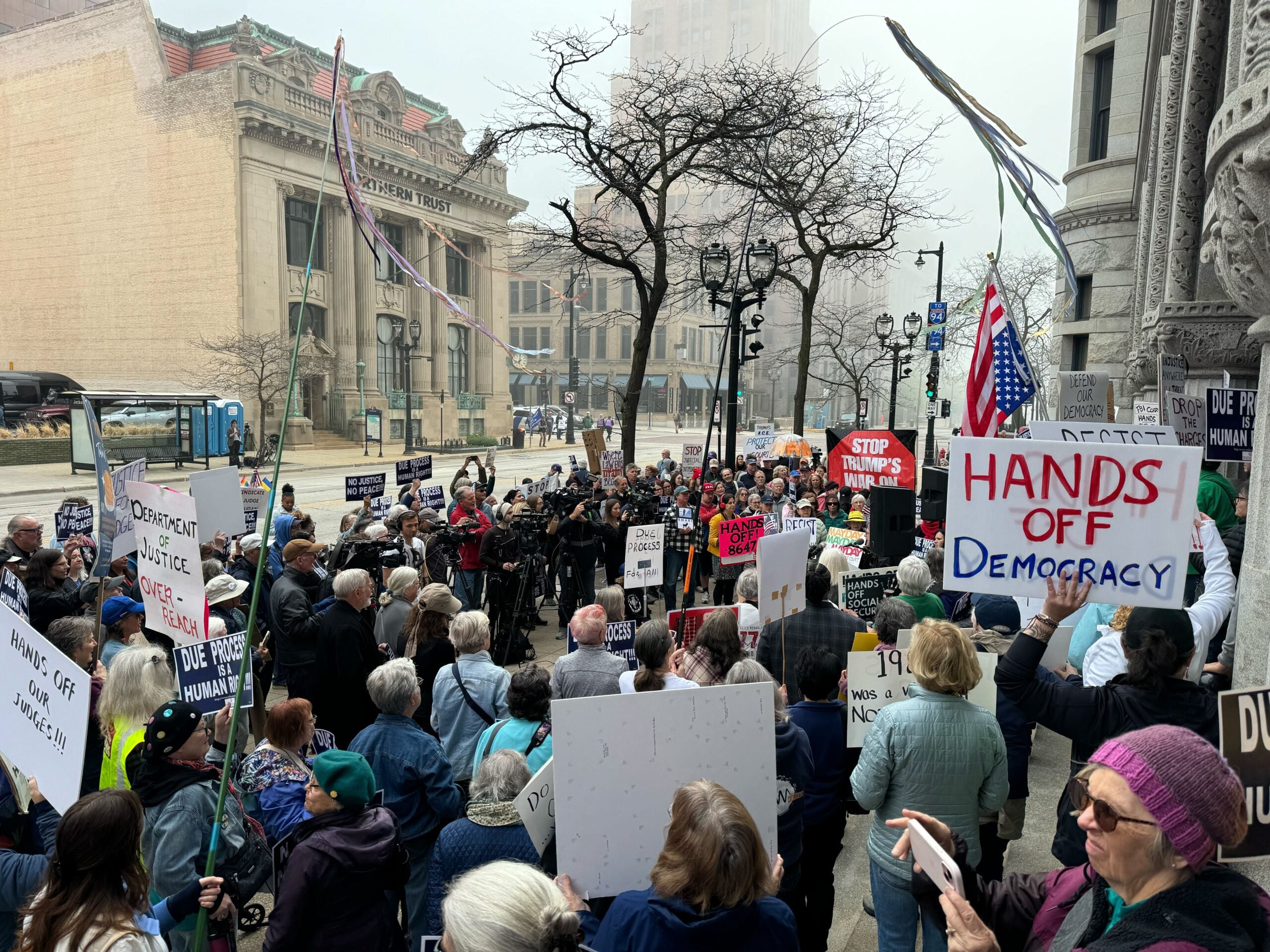Chrystul Kizer has accepted a plea deal after being charged in the killing of man who sexually abused her when she was underage.
Kizer, who is now 23, pleaded guilty Thursday in Kenosha County Circuit Court to a felony charge of second degree reckless homicide.
She previously faced a slate of additional felonies, including first-degree intentional homicide.
News with a little more humanity
WPR’s “Wisconsin Today” newsletter keeps you connected to the state you love without feeling overwhelmed. No paywall. No agenda. No corporate filter.
Sentencing in the case is set for Aug. 19 before Judge David Wilk.
District Attorney Mike Graveley said he plans to recommend prison time for Kizer, though prosecutors have not yet specified how much in their suggestion to the judge.
Kizer was 17 when Kenosha County prosecutors said she shot 34-year-old Randy Volar twice in the head, set his house on fire and fled in his car.
As part of her plea agreement, Kizer admitted Thursday that she used a dangerous weapon to cause the death of Volar as a result “criminally reckless conduct.” Under that charge, she could spend a maximum of over two decades in prison.
A first degree-intentional homicide conviction could have resulted in a life sentence. A jury trial had been set for next month.
Wilk agreed Thursday to dismiss the remaining charges against Kizer in the 2018 case, which included taking and driving a vehicle without consent, arson, possessing a weapon as a felon and bail jumping. All of those are felonies.
In 2022, Wisconsin’s Supreme Court ruled Kizer could use a Wisconsin law intended to protect trafficking victims as part of her defense. That 2008 law shields trafficking victims from being punished for crimes committed as a direct result of having been trafficked.
Kizer’s case has attracted international attention, igniting discussions about racial justice and sex trafficking against Black woman and girls. Kizer is Black and Volar was white.
“What I want to have happen is for people who are related to Mr. Volar, and the people who care about Chrystul Kizer to all get closure,” Graveley, the district attorney, told reporters following Thursday’s hearing.
Gravely said it’s “impossible” to predict how a jury would have decided the case, noting that the defense’s arguments using Wisconsin’s shield law would have been unprecendented.
“It’s a first time in terms of this law and wrestling with this law in terms of a jury,” Gravely said. “I’m confident the facts are not the same facts that social media has about this case and I believe a jury would handle this case fairly.”
Under Wisconsin law, any use of children in the commercial sex industry is defined as trafficking. Gravely acknowledged Volar’s actions met that definition because he sexually assaulted Kizer when she was underage.
But, he said, he hasn’t found evidence that Volar trafficked Kizer to other men.
“I’m aware of evidence that he was a customer of hers when she was a minor, where he paid her for sexual services, which in Wisconsin is a felony,” Graveley said. “I think that social media has portrayed Mr. Volar as being a a person who normally we would describe as a pimp who would take her from place to place and traffic her in those kinds of ways, and I’m not aware of any evidence of that.”
WPR has reached out to the Kenosha County Public Defender’s Office, which represented Kizer, with a request for comment.
Motion was pending to let jurors consider incident that led to disorderly conduct charge
Prior to Tuesday’s agreement, prosecutors had submitted what’s known as an “other acts” motion, asking Wilk to let jurors consider evidence from an incident that happened earlier this year while Kizer was out on bond.
On Thursday, Wilk agreed to revoke that bond which had been raised to $750,000 earlier this spring
In January, Milwaukee County prosecutors charged Kizer with disorderly conduct, a misdemeanor.
According to a criminal complaint, Kizer called police to a Milwaukee home and told them she discovered the man she had been living with there was a child sex offender who had lied to her about why he was under community supervision.
While police were at the home, Kizer threatened the man and tried to hit him, according to the complaint.
The motion details how Kizer attempted to hide the man’s car keys from him during the altercation, which the district attorney describes as a “highly-manipulative, completely dishonest, brazen attempt in front of law enforcement to accomplish the stealing of the (the man’s) car keys, and thus, his automobile.”
The motion alleges the 2024 incident was similar to Kizer’s killing of Volar in 2018 because prosecutors argue Kizer attacked someone in both cases in order to steal his car.
In March, Wilk sided with Kizer’s attorneys when he agreed to let jurors see explicit videos during a future trial, including videos of Volar abusing Kizer and other girls.
Wisconsin Public Radio, © Copyright 2026, Board of Regents of the University of Wisconsin System and Wisconsin Educational Communications Board.

